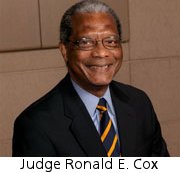2/16/2012
Washington Appeals Court: Automobile Safes Are Off LimitsWashington Court of Appeals rules unconstitutional a warrantless search of locked containers in a trunk.

Over time, courts have diminished the motorist's expectation of privacy. Police need only come up with a minor traffic infraction as a pretext to conduct a valid traffic stop. From there, courts have given liberal interpretation to circumstances that justify a warrantless search of the car. According to a decision handed down last month by the Washington State Court of Appeals, a police officer needs a warrant to search a locked container in an automobile's trunk.
A three-judge panel considered a July 2009 incident in Whatcom County where Deputy Matthew High stopped Nicholas Lee Monaghan for allegedly running a stop sign. High recognized Monaghan's girlfriend, Danielle Fink-Crider, and knew she had a warrant out for her arrest. When Monaghan told High that her name was "Amber Smith," Monaghan arrested him for making a false statement. The officer then asked for, and received, permission to search the Acura for weapons.
Another deputy on the scene found a zippered bag containing a locked safe in Monaghan's trunk. He opened the safe using a key obtained from the passenger compartment and found methamphetamine. For this, Monaghan was found guilty of possession. Monaghan appealed his conviction, arguing the police exceeded the scope of his consent.
Washington's constitution provides greater privacy protection than the Fourth Amendment. "No person shall be disturbed in his private affairs, or his home invaded, without authority of law," article 1 section 7 states. The state recognizes very few exceptions to the requirement that police obtain a warrant or consent for any search. So the court considered whether consent extended to the items vehicle's trunk.
"The first question in an inquiry under article 1, section 7, is whether the state action constitutes a disturbance of one's private affairs," Judge Ronald E. Cox wrote. "There is no dispute that the search of the trunk, as described in the above findings, constituted such a disturbance. Likewise, the search of the locked container, which is described in the above findings, also disturbed the private affairs of Monaghan."
This finding differs significantly from federal law, which gives police the freedom to search locked containers in an automobile without a warrant.
"We conclude that Monaghan had an additional privacy expectation in the locked container discovered in the search of the trunk in this case," Judge Cox wrote. "This search and seizure was without a warrant and without Monaghan's consent. Thus, it was without the authority of law that the Washington Constitution requires."
A copy of the decision is available in a 50k PDF file at the source link below.


